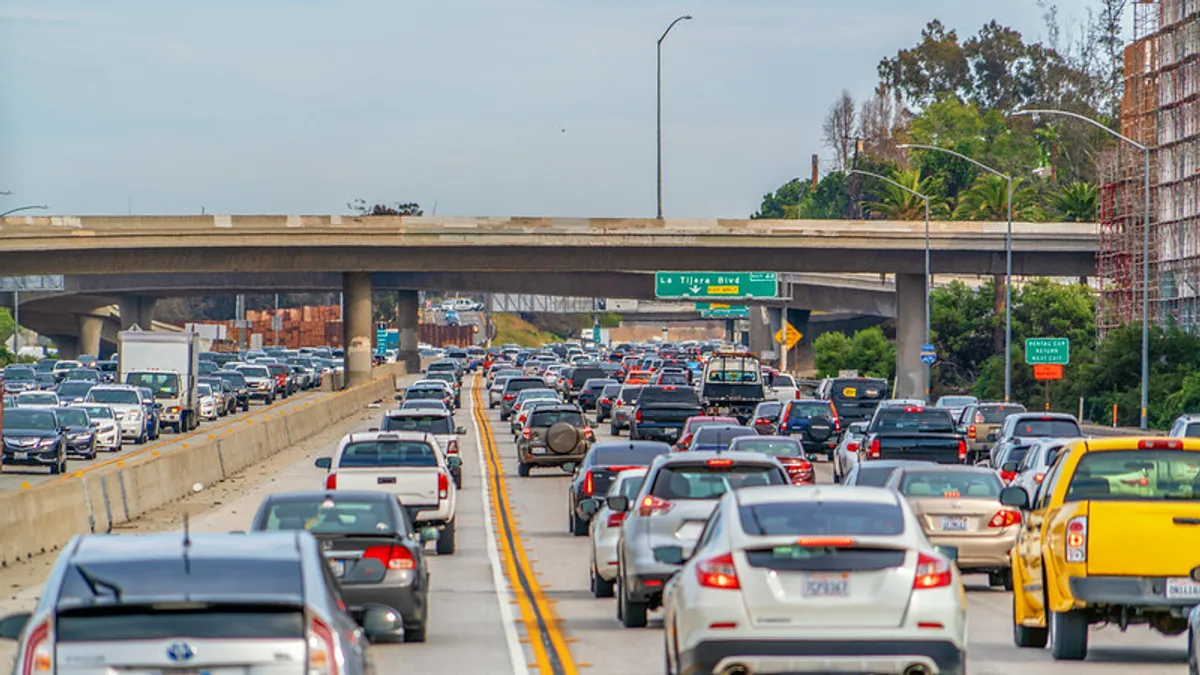Dive Brief:
- Austin, TX; Fort Smith, AR; Walnut Creek, CA; and Westminster, CO have won the Parsons Smart City Challenge, launched in collaboration with Amazon Web Services in 2019 to "revolutionize" mobility.
- Fort Smith, AR won the first place prize, followed by Austin, TX in second place, and Walnut Creek, CA and Westminster, CO as "runners-up." Each city will be given free, limited trials of Parsons' new Intelligent Intersection software to address congestion and achieve local transportation goals.
- The Intelligent Intersection solution uses data from local signal controller units and sensors to create a dashboard for traffic engineers with visual information, intended to cut congestion and improve decision-making.
Dive Insight:
Before the new coronavirus pandemic (COVID-19), congestion was responsible for costing the U.S. about 6.3 billion hours, 30 million tons of greenhouse gas (GHG) emissions and $88 billion of productivity annually, according to the City of Austin’s Department of Transportation. But amid national stay-at-home orders, cities have seen emissions fall as much as 26% and air quality has improved across the country.
As the country looks ahead to reopening, there’s concern that GHG emissions could restore to pre-pandemic levels due to the return of personal vehicle traffic and the activities of daily life. Retiming traffic signals through smart solutions, like that of Parsons, can potentially help to keep some of those emissions down.
Austin, TX, for instance, will leverage the solution to monitor the city’s Cameron Road corridor, using existing sensors to understand traffic data and provide signal timing suggestions. Engineers can use intersection data from Parsons' software to retime signals up to 20 times more often, which can reduce congestion at intersections up to 40%. Such a reduction can also reduce GHG emissions by roughly 4.9 million tons annually, sparing about $27 billion annually in productivity losses.
"Austin is committed to smart city innovation and the Smart Mobility Office is currently working with a number of private companies to test, pilot, and prove emerging technologies that will help us achieve our mobility goals," Austin Transportation Assistant Director Jason JonMichael said in a statement.
The solution may also help to boost safety in the winning cities, as speed has become a major issue amid varying levels of congestion. Nationally, the drop in traffic since March has not proportionally reduced crash risks, according to Bob Pishue, a transportation analyst at INRIX.
"If you get rid of congestion, then the number of accidents decrease but the severity increases because they are going at a higher rate of speed in general," Pishue told Smart Cities Dive in an earlier interview.












